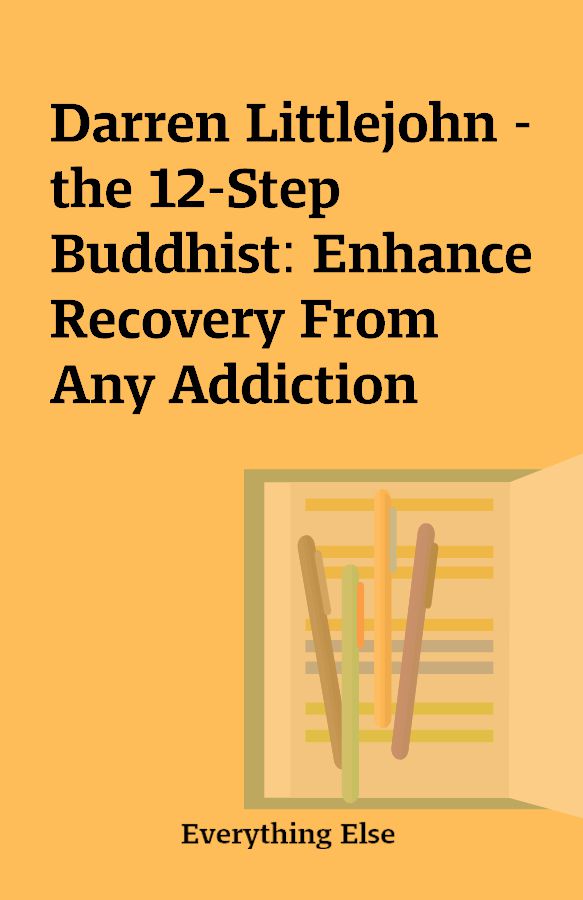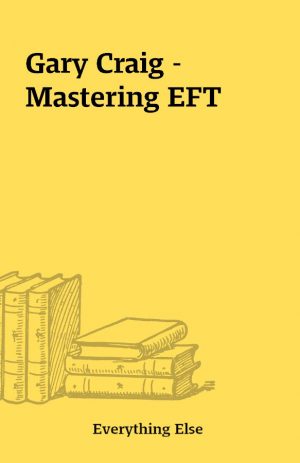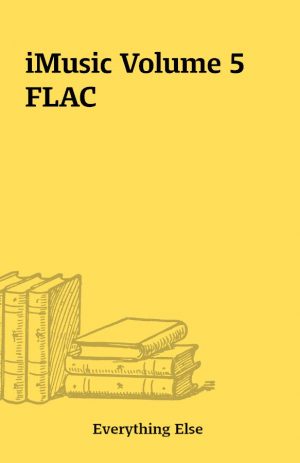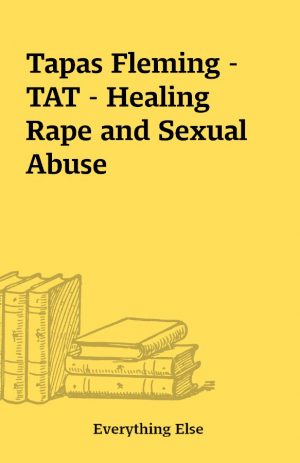Darren Littlejohn – the 12-Step Buddhist: Enhance Recovery From Any Addiction
the 12-Step Buddhist
[1 eBook – mobi, epub]
Description
The 12-Step Buddhist by Darren LittlejohnDarren Littlejohn has written a wonderfully gritty book on the nexus of therapy, recovery and Buddhism, as drawn from his own experiences with addiction. This is not a theoretical text on how Buddhism can help the recovering addict. It is a “how-to” book on integrating 12 step recovery programs with the dharma. Addiction is one of the most puzzling of illnesses, often baffling the medical professional, those dear to the addict and the addict herself. Littlejohn writes in his introduction:In my experience, neither Buddhists nor the 12-Step community is properly equipped to deal with dual-diagnosed addicts. I have seen many therapists since childhood. They really couldn’t help much until I learned to apply and integrate recovery with therapy and Buddhism.Prior to 12 step programs there were attempts made to help the addict, the Oxford movement offering one of the more famous. William James, in his Varieties of Religious Experience referred to a group that had some similarities to today’s 12 step groups, but these were few and far between, existing mostly in large urban areas.12 step programs have benefited many addicts, but those in recovery represent a small percentage of those who need help. Littlejohn cites statistics from the National Institute on Drug Abuse (NIDA) that in 2006, 23.6 million persons aged twelve or over needed treatment for an illicit drug or alcohol use problem or about 10% of the population aged twelve or more. But only 2.5 million of these people received treatment.In recent years U.S. membership in Alcoholics Anonymous runs a little over a million. If AA were 100% successful it would be adding millions of alcoholics a year, but such is not the case. As newcomers come in, existing members relapse and drop out. Littlejohn takes a hard look at these facts and tries to understand what is happening as well as coming up with solutions, not as a scientist but as a compassionate Buddhist who is trying to relieve suffering.While Littlejohn is not dogmatic, he does persuasively argue that Buddhist teachers in general know very little about addiction. However, it can be that the Buddhist addict, acting from her own experiences and from her own understandings of the dharma, can new bring new insights and treatments to the suffering addict. In my own 12 step work with addicts in jail I always try to remind them that they have a special gift that can be of great benefit to others. They know what addiction is. If they can learn how to be sober after leaving jail they can lead others to recovery. Sharing this with other addicts can be transformative. In a way it is calling attention to their own Buddha nature.The book is divided into two main sections. The first provides the context for Littlejohn’s prescriptions for integrating dharma with each of the 12 steps. He tells of his own battle with addiction, his hardscrabble family life with a bi-polar mother and alcoholic father and brother, his introduction to meditation through Kung-Fu television programs, to Zen and Tibetan Buddhism, and discusses medical research on addiction.The second part takes each of the 12 steps of recovery and integrates them with Buddhist principles and meditation topics. The impact is very powerful in that Buddhism and recovery are no longer separate but are integrated into a potent medicine that can bring joy, equanimity, loving kindness and compassion into the hearts of addicts who once lived in hell. That this has become Littlejohn’s work speaks well of his recovery and his practice.The face of addiction and alcoholism is a face that many have seen before — it may be a celebrity, a colleague, or even a family member. And though the 12-step program by itself can often bring initial success, many addicts find themselves relapsing back into old ways and old patterns, or replacing one addiction with another. Author Darren Littlejohn has been there and back, and presents a complimentary guide for recovery to the traditional twelve-step program, out of his own struggles and successes through the study of Zen and Tibetan Buddhism.Working with the traditional 12-Step philosophy, the author first shares his own life path, and how he came to find the spiritual solace that has greatly enhanced his life in recovery. Then, he details out how his work integrating Buddhism into the traditional twelve-step programs validates both aspects of the recovery process. While being careful not to present himself as a Tibetan lama or Zen master, the author shows how each step — such as admitting there is a problem, seeking help, engaging in a thorough self-examination, making amends for harm done, and helping other drug addicts who want to recover — fits into the Bodhisattva path. This integration makes Buddhism accessible for addicts, and the 12 Steps understandable for Buddhists who may otherwise be at a loss to help those in need.The 12-Step Buddhist is designed to be a complimentary practice to the traditional 12-step journey, not a replacement. While traditional twelve-step programs help addicts become sober by removing the drug of choice and providing a spiritual path, they rarely delve deep into what causes people to suffer in the first place. The integration of Buddhism with the traditional process provides the wisdom and meditations that can help addicts truly find a deep, spiritual liberation from all causes and conditions of suffering — for good.
You must be logged in to post a review.






Reviews
There are no reviews yet.